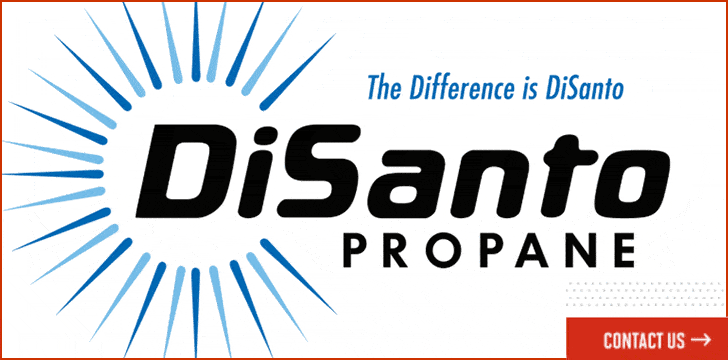Editor’s Note: This op-ed was written by Peter Mantius based on his seven years of reporting on Greenidge Generation’s restart, conversion to natural gas power and transformation into a Bitcoin mining operation at Water Front.
No doubt Gov. Kathy Hochul has her hands full devising proactive responses to recent titanic U.S. Supreme Court rulings on gun control and abortion.
And in a turbulent election year, she’s feeling the need to stomp on the fundraising gas pedal.
Busy, challenging times.
It would be easy for a distracted governor to underestimate the importance of the environmental ruling her Department of Environmental Conservation will make later this week. So easy to issue marching orders to the agency that seem to serve her political interests even if they conflict with the repeated fact-based stands taken by DEC Commissioner Basil Seggos.
But if she carefully weighs the pros and cons, she’ll simply let the DEC carry out its statutory duties.
The DEC has set itself a deadline of Thursday, June 30, to rule on whether to grant or deny Greenidge Generation a new air emissions permit for its Bitcoin mining operation on Seneca Lake.
The natural gas-powered plant emits greenhouse gases at levels that exceed the proposed limit on its permit application and conflict with the goals of the state’s 2019 Community Leadership and Climate Protection Act.
Ten months ago, Seggos tweeted: “Greenidge has not shown compliance with NY’s climate law.” He’s since reaffirmed that position several times. Three months ago, Seggos said Greenidge faced an ‘uphill battle’ to renew its air permit.
The Hochul Administration’s party line says DEC makes regulatory rulings independent of political interference from above. But it’s impossible to square that claim with the agency’s use of shallow pretexts to justify nearly six months of ruling delays.
Greenidge’s air permit expired last September, but it has been administratively extended pending the decision on whether to renew. The DEC initially faced a January deadline to rule.
Hours before that deadline, the agency said it needed two more months to consider the thousands of public comments that had been filed months earlier. (Cornell University researchers later found that those comments ran nearly 100-to-1 against renewal.)
Then on the eve of the new March deadline, the DEC said it would need three more months to consider Greenidge’s offer to promise future (rather than immediate) compliance with the law.
While that delay allowed Greenidge earn tens of millions of dollars in Bitcoin, it was particularly tailored to suit Hochul. The agency’s crucial ruling could wait until after Tuesday’s June 28 Democratic Primary election.
Hochul’s predecessor, former Gov. Andrew Cuomo, had showered Greenidge’s owners with regulatory favors. So far, she hasn’t bucked that tradition, but Seggos has signaled that DEC is prepared to do so now.
Atlas Holdings, Greenidge’s principal owner, is a Connecticut-based private equity group headed by Andrew Bursky and Tim Fazio. They steered $120,000 contributions to Cuomo’s election campaign before raking in regulatory concessions.
Greenidge also paid Mercury Public Affairs more than $500,000 for the services of lobbyist Michael McKeon, who founded and/or ran the group Republicans for Cuomo.
Those influence expenses were reimbursed with interest when Cuomo awarded Greenidge a taxpayer-funded $2 million state grant towards its restart and conversion from coal to natural gas.
Compensated for fine-tuning regulatory concessions, McKeon could reasonably claim he successfully delivered.
The DEC has repeatedly delayed enforcement of a 2015 consent agreement, which mandated a full cleanup of hazardous leachate from Greenidge’s coal ash landfill by October 2016.
And the DEC explicitly excluding the coal ash landfill as a factor in its decision to excuse Greenidge from preparing an environmental impact statement for the plant’s restart and fuel conversion.
Then in early 2017 the DEC allowed Greenidge to restart its plant without up-to-date water withdrawal and discharge permits. Once updated later that year, the permits required the plant to install fish screens on its water intake pipe in Seneca Lake to comply with federal rules. But the agency allowed a five-year grace period for installation. There still aren’t any fish screens.
In 2020, when Greenidge sought permits to erect four new buildings to house Bitcoin computer servers for a project that would require sharply higher energy generation and greenhouse gas emissions, the DEC allowed a local planning board to step in as lead regulatory agency. The planning board for the Town of Torrey, population 1,241, waived an environmental impact statement.
McKeon, a Cuomo political crony, no longer works for Greenidge.
But Atlas Holdings and Bursky, in particular, are quite capable of rewarding other compliant political leaders. Bursky co-founded the political finance group No Labels in 2010, and he remains active on the dark money team known for collecting six-figure contributions from wealthy donors and redistributing the campaign cash to purported moderates.
It’s not likely that a power player like Bursky — let alone No Labels — has escaped Hochul’s attention.
The New York Times reported Friday that she has set a target of raising $50-70 million before the general election in November in what would be the state’s most expensive campaign for governor ever. Tomorrow evening, the paper reported, she has a scheduled a Manhattan “roof-top fundraiser” that will ask hosts to give or raise $25,000.
Bursky’s No Labels is a prodigious campaign finance bundler, and it has used that prowess to cement deep ties to, among others, two key swing voters in the U.S. Senate: Joe Manchin and Kyrsten Sinema.
Last year The Intercept published a report on a leaked ZOOM call Manchin had with No Labels’ deep pocket donors. Bursky helped Manchin field questions on the call. The West Virginia senator touched on the Senate filibuster, which Most No Labels listeners want to preserve in order to stymie regulation.
The consequences to Hochul for either helping or crossing Bursky and his Bitcoin operation aren’t clear, but they certainly merit consideration.
For a view of the potential upside for playing ball, Hochul need look no further than former Republican Congressman Tom Reed of Corning, whose district includes Dresden.
In 2015 and 2016, Reed was a relatively obscure Congressman when he began supporting Greenidge’s plans for the Dresden plant in editorials, letters to the DEC, public appearances and testimony before the state Public Service Commission.
In March 2016, Bursky personally contributed $1,000 to Reed’s election campaign. Over the next two election cycles — 2018 and 2020 — Reed’s campaign received more than $275,000 from No Labels and more than $10,000 directly from Bursky and his wife.
Meanwhile, in 2017 No Labels formed the Problem Solvers Caucus, a group of roughly 50 Republican and Democratic “moderates” in Congress. Reed soon emerged as its co-chair.
The Problem Solvers platform raised Reed’s stature in Congress and provided him special exposure to No Labels mega donors like Andrew Tisch, co-chair of Loews Corp., a major hotels, finance and insurance conglomerate.
In October 2020, Forbes posted an interview Reed conducted with Tisch in which Tisch effusively praised the goals of No Labels and the Problem Solvers Caucus Reed co-chaired.
Feeling confident about his fund-raising potential early last year, Reed hired staff for a planned run for governor of New York when he was blind-sided by a sexual harassment charge. He promptly announced that he would not seek another term, and the Problem Solvers Caucus dropped him as co-chair.
Because campaign fund-raising is such a priority for Hochul, she may feel the need to assess the potential consequences of helping or disappointing Bursky on the Greenidge permit renewal decision.
She’s already received more than $300,000 in contributions since November from Tisch and six of his family members. Are money flows like that in jeopardy? Maybe not, but who really knows?
This much is clear. If the DEC awards the Dresden plant a new air emissions permit or if it allows the Bitcoin operation to continue by way of a third regulatory contrivance, Hochul’s campaign finance agenda will be the prime suspect for driving the decision.
On the other hand, if the DEC denies the permit, good for Hochul. That would mean she listened to Seggos and followed the science and law. That she heard the cries of the winemakers and the unanimous Seneca County legislators who live downwind of Greenidge’s spewing smokestacks.



